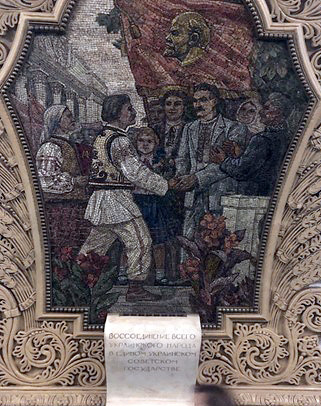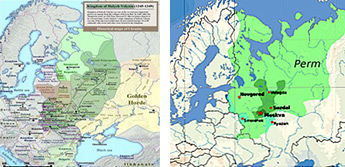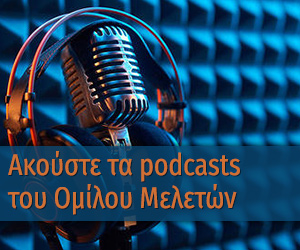1) How exactly are Ukrainians and Russians one nation or brothers?
Your President of 20+ years and several other officials (Mr. Medvedev, Mr. Surkov, Igor Girkin, yourself et al) have repeatedly stated in writing or in speeches that Ukrainian people are “brothers” with Russians (or even one nation) and there are many paintings, but only from the Soviet era, showing this alleged relationship. Here is one:

However, historical events tell us a rather different historical tale, surely?
a) When the Kiev Russ was established in the latter part of 9th cent CE and when mighty Valdemar/Volodymyr married the Byzantine Emperor’s daughter and was baptised Christian c. 980, neither the Russian people was in existence nor the Muscovy Duchy, nor Moscow itself as a town or even as a community – not until c. 1250. The Kievan Russ, however, were well known then and subsequently as “Ukranian”, i.e. “Native people” (“border people” and some variants).
b) The Muscovy Duchy developed from a mixture of the Novgorod Duchy and Vikings and Mongols and became the Russian Nation as we know it today, establishing itself well to the North, as the map(s) show: the Vladimir Suzdal, Grand Principality (deeper green, bordering with the Novgorod Republic, West, on left map), second half of 13th cent CE. The State of Russia developed as in the green part of the map on the right – and it does not include what is known as the region of Ukraine in the South-West.

Russia under the Tsars of the Romanov family obtained half of Ukraine only in 1667, by agreement, the other half going to the Polish State. But it was only at the end of 18th cent. That, under Empress Catherine, after an agreement with the Habsburgs, Russia took over most of the ancient lands of the Kievan Rus, i.e. the Ukraine we know.
c) When the Russian armed forces invaded Ukraine in the special military operation,2022, the Ukrainians did not welcome them as brothers but as enemy-oppressors and put up increasingly intense resistance blowing up tanks and other military equipment and killing or capturing as many soldiers as they could. The Russians responded in the same manner, bombarding towns and killing many civilians, including pregnant mothers and little children! Hardly brotherly!!!
2) Who are the Nazis in Ukraine?
It has been claimed repeatedly since 2013 that crypto-Nazis govern the country or that strong Nazi elements have polluted the otherwise pure Russian part of the populace. Certainly there were Ukrainian Nazi collaborators in the WW2; but since Stalin himself chose to collaborate with Hitler in the dismemberment of Poland in September 1939 (and then in seizing the 3 Baltic States and parts of Finland) we can disregard this aspect. Many Russians also were Nazi collaborators. It is only in 2014 that Russian law made it a criminal act to mention such events, although these are well documented both in all newspapers and the archives of the all the other States concerned and in the archives of the late USSR, as shown by the publications (many translated into English, French and German) of many Russian academics in Russia.
There is the Azof group of extreme nationalists incorporated in the official Ukrainian army, but this is only a comparatively small unit. Surely not all the other native, often Russian-speaking, Ukrainians and the thousands from other Western countries who returned to fight the Russians (whom they see as invaders wantonly bombing and destroying whole towns and ordinary civilians and children), are Nazis. For if they all are Nazi-minded, then where is the national unity or brotherhood with the Russians that Mr Putin and others so passionately invoke in writing and speaking (e.g. in 2021, as in section §1)?
In the elections of May, 2014, two far-right candidates for the presidency received each less than 1% of the vote! Now surely other European countries have much larger percentages of far-right or Neo-Nazi mentality. Golden Dawn in Greece, e.g., received more than 5% and entered Parliament. It is possible that in Russia too there are Neo-Nazis pure and obvious or masquerading as something different, like the notorious “Night Wolves”, who like most extreme right followers are also very pious Christians, when it comes to verbal confessions of faith.
The formations in the left-hand photo are obviously very similar. The men in the right photo are Russian Neo-nazis. The motorcycle brigade who are Night Wolves look remarkably like the Nazi SS and, in fact, fought in the Crimea in 2014 or, at least, helped the Russian Forces gain full control of the region.

In any case, do not the prohibitions in Russia of free expression, movement and association, show a legal system closer to Nazi fascism?
3) Is not Russia, therefore, aiming at re-conquering an independent State member of the UN, as it certainly looks by historical and pragmatic criteria and not nebulous pseudo-mystical notions? And with its special military mission in Ukraine is it not violating International Law, which, as a member of the Security Council of the UN, it ought to uphold most vigorously?
For Ukraine’s separate existence as a State was recognised as such by the former Soviet State (Khrushchev in fact ceded the Crimea to Ukraine in 1954) while its present borders, established after 1990, were guaranteed by the Russian Federation (as well as Britain & USA) in 1994 with the Budapest Memorandum – whereby, in exchange, Ukraine surrendered its nuclear arsenal (some 1300 IBMs).
Since the WW2 from all the European nations only the Soviet Union and recently the Russian Federation sent its armed forces into other countries in acts of aggression and oppression – Hungary, Czechoslovakia, Poland, Georgia and Ukraine. Yes, I do know well that Russia claims to be a Land of Innocence and Peace and its wars always “defensive” but in view of its actions in being the only European country to invade others, this claim does not convince.
4) Did not 92% of the population of Ukraine in 1991 vote to be separate from Russia and be an independent State? Were all these people Neo-Nazis?
Moreover, more than 4 million refugees (mainly women, children, elderly and sick people) have since February 2022 fled to Western Democracies (Poland, Rumania, etc.). Are all these also Neo-Nazis? If they liked the Russians as much as you claim and there was some intimate relation between the peoples, why would they all choose to go to the European Union members and not to Russia? The only people (a few thousand women and elderly mainly ) who went to Russia are those whom, under voluble protest, the Russian Forces forcibly transported to Russia. To what end? Their relatives are either in the West or in Ukraine fighting the abductors.
The notion propagated widely by the Kremlin and yourself that NATO and the West and Ukraine as their instrument have designs against Russia can hardly stand in the light of reason and logic. The two Baltic States Estonia and Latvia, bordering on Russia, joined NATO in 2004 but there were no protests then and NATO made no threatening moves towards Russia. On the contrary, Russia showed an inclination to be friendly with NATO, Mr. Putin flirted with the EU and even allowed American military planes to use its airspace as late as 2008 to transport supplies to USA Forces stationed in Afghanistan. What on earth (or in heaven) produced such a change in Russia?
Is it possible that for various reasons the Putin regime is afraid not of military moves from the West but of cultural democratic developments in a country which is regarded as very close, i.e. Ukraine – developments which the Russian people at large seem unable to accommodate, despite some efforts as long ago even as the times of Peter the Great?
In the light of the preceding considerations Mr Putin’s article (and others’) of 2021 seems wishful thinking and expressive of a desire for forcible, acquisitive expansion, not the reunion of a triune nation (to include Belarus). It is, also, fearful of any Western democratic developments in Ukraine due to deep-rooted notions of Russian superior sanity and culture and Russian attachment to a “savior” but autocratic absolutist leader as seems to be your tradition.


